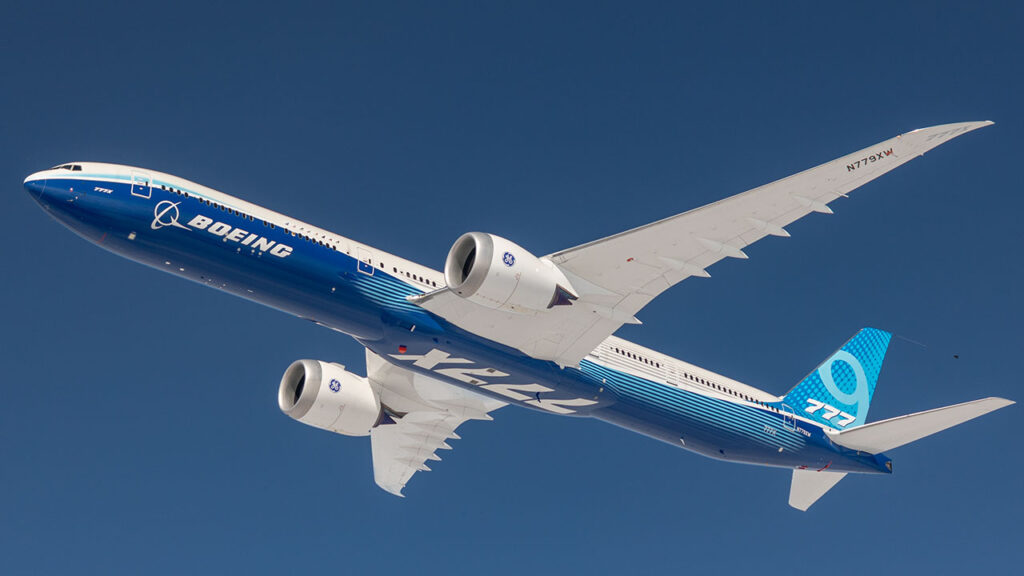
DOHA: Boeing and GE Aerospace finalized a $96 billion agreement to provide Qatar Airways with up to 210 aircraft, the White House announced.
Boeing CEO Kelly Ortberg joined President Donald Trump in Doha for a signing ceremony, cementing the airline’s purchase of 787 Dreamliners and 777X jets powered by GE engines. The deal marks Boeing’s largest-ever widebody order and its biggest 787 purchase, according to the White House.
The agreement, which comes amid U.S.-Qatar diplomatic dealings, may intensify scrutiny over Trump’s endorsement of Qatar’s offer to gift the U.S. a luxury 747 jet for use as the new Air Force One.
In a fact sheet, the White House said the deal is expected to support 154,000 U.S. jobs annually and more than one million domestic jobs over the course of production and delivery.
The announcement carries significant geopolitical and economic implications, especially given the current global landscape. Here’s a structured analysis:
Strategic Win for Boeing & U.S. Aerospace Industry
– Competition with Airbus: Boeing has been struggling with production delays, safety controversies (e.g., 737 MAX crises), and losing market share to Airbus. This deal (reportedly for up to 50 wide-body 787 Dreamliners) is a major boost, reinforcing Boeing’s position in the long-haul segment.
– U.S. Jobs & Economy: The White House’s emphasis on the deal suggests a political win for the Biden administration, showcasing U.S. manufacturing strength and job creation ahead of the 2024 election.
Qatar’s Aviation Strategy & Geopolitical Alignment
– Fleet Modernization: Qatar Airways has been aggressively upgrading its fleet after retiring older A380s and A350s (due to disputes with Airbus). The 787s offer fuel efficiency and flexibility for its hub-and-spoke model.
– Diversification from Airbus: The deal signals Qatar’s willingness to pivot toward Boeing, reducing reliance on Airbus amid lingering tensions over aircraft surface degradation issues.
– U.S.-Qatar Relations: Qatar, a key U.S. ally in the Gulf, hosts Al Udeid Air Base (critical for U.S. Middle East operations). This deal strengthens bilateral ties amid regional volatility (e.g., Iran tensions, Gulf Cooperation Council rivalries).
Geopolitical Undercurrents
– China Factor: Both Boeing and Airbus compete fiercely in the Middle East, a region where China is also expanding influence (e.g., via COMAC’s C919). Qatar’s choice of Boeing may reflect continued U.S. leverage.
– Gulf Rivalry: Qatar’s rival, the UAE (home to Emirates and Etihad), is a major Airbus customer. The deal underscores the competitive dynamics between Gulf carriers.
– Energy & Defense Linkages: Qatar is a major LNG exporter, and the U.S. seeks to deepen energy partnerships with Doha, especially after the Ukraine war disrupted global gas markets.
Challenges & Risks
– Boeing’s Execution: Past quality control issues (e.g., 787 delivery halts in 2021) could resurface, risking delays.
– Airbus Backlash: Airbus may retaliate commercially or legally, given its fraught history with Qatar Airways over A350 disputes.
– Regional Shifts: If Gulf detente with Iran progresses, Qatar’s aviation growth could face new headwinds (e.g., airspace restrictions).
This deal is more than a commercial transaction—it’s a geopolitical signal reinforcing U.S.-Qatar ties, Boeing’s revival, and Qatar’s ambition to remain a top global aviation hub. The White House’s vocal endorsement underscores the strategic importance of aerospace in great-power competition, particularly in a region where economic and security interests are deeply intertwined.